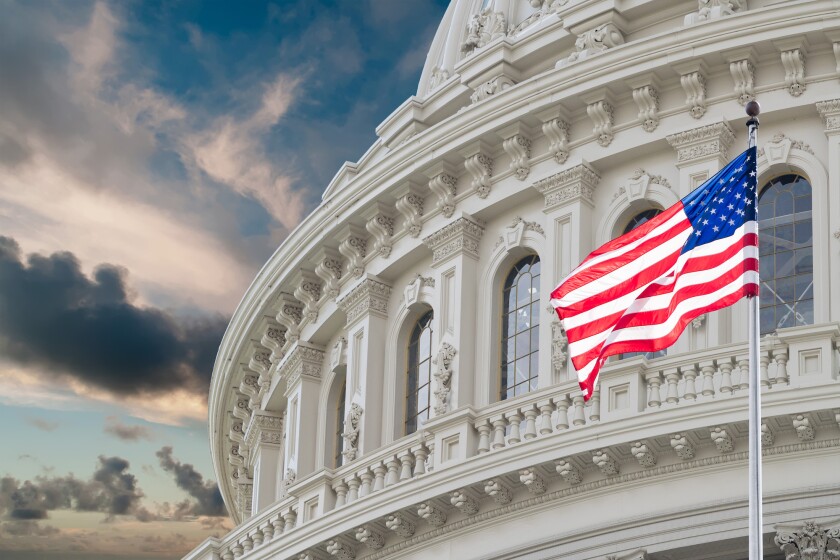It’s just another week in Congress and the FairTax Act is back in another form. Republicans have been talking about the bill for almost 25 years because it looks like a shortcut to a simplified tax system, but the reality is quite different.
US corporate tax rules could be simplified to raise more revenue, and direct taxes are a crucial part of that. In theory, the FairTax Act would replace corporate tax with a nationwide tax on retail sales set at 23%.
The proposal was first put forward in 1999 by John Linder, Republican representative from Georgia, but it was defeated. It has been re-introduced many times in the years since, only to be dismissed.
Supporters of the FairTax Act argue it would cover 90% of all consumption in the US and this would amount to about 61% of GDP. This would raise a huge amount of tax revenue because it is much more difficult to avoid paying a sales tax than a corporate tax.
However, we know that tax evasion would continue just by looking at the history of VAT in Europe. The VAT gap persists despite the best efforts of European tax authorities because businesses and individuals handling cash can dodge the levy.
Nevertheless, supporters argue it would be revenue-neutral, more efficient and encourage US companies to onshore assets. This is very much disputed since it’s likely that the FairTax regime would probably have to apply a rate higher than 23% to match $4.6 trillion in tax revenue, the amount received in 2021-22.
Companies might bring more cash and non-assets back to the US, including intellectual property, because corporate profits would no longer be taxable. But this is only true in a fictional world where international standards no longer apply.
The US would have to break with the OECD and effectively become a corporate tax haven if it implemented the FairTax Act in full. This would completely derail international tax reform and it would do nothing to prevent other governments trying to raise taxes on US companies.
The FairTax Act would mean either a higher rate, or other taxes on top of it, or huge cuts in public spending. Since FairTax advocates are opposed to the first two options, we can only conclude that this is not really about raising revenue for them.
Out with the IRS
What is the point of the FairTax Act if it’s not to raise tax revenue? It’s about changing the size of the federal government. This is clear from the proposal and its implications for the future of the Internal Revenue Service (IRS), not just for tax receipts.
Under the FairTax Act proposal, the US would replace the IRS with a new office to administer the flat rate. Getting rid of the IRS may be appealing to small-government conservatives, but the cost of doing so could be significant for taxpayers.
The Tax Policy Center (TPC), based in Washington DC, estimates that annual collection fees for US states would be around $10 billion under the FairTax Act. The IRS spends $13 billion a year on collection nationally. These collection costs could be passed onto businesses in the form of an increased compliance burden.
Meanwhile, state and local taxes might ‘top up’ the effective rate to 30% or more. The tax reduction might be less for the average taxpayer than FairTax advocates claim.
The Democrats are opposed to the idea for very clear reasons: the FairTax rate would amount to a tax cut for the rich, while middle-class and working-class people stand to pay more in tax overall.
It’s not just liberals who think this. The US Treasury Department under the Bush administration found this would be the case in a 2005 study, just as the TPC did as part of the 2012 Republican primaries.
The Bush-era Treasury study found that the risk of tax avoidance and evasion would be very high with a FairTax-style national sales tax. Many businesses, particularly small ones dealing in cash, would be able to dodge the levy to increase sales.
So far, the US has avoided the European route of national VAT systems in favour of the states deciding whether or not to levy a sales tax. The result means the IRS raises less tax revenue, but it also doesn’t face the difficulty of tackling VAT fraud.
A single national sales tax could be effective in terms of tax collection, but this is because of its simplicity and broad tax base. It would still have to be combined with other taxes to increase overall tax revenue.
What Democrats and Republicans should be thinking about if they want to increase tax revenue – without raising rates – is to simplify the US corporate tax system and transfer pricing rules. Closing loopholes and ending unnecessary forms of relief would be a better shortcut to higher revenue.











